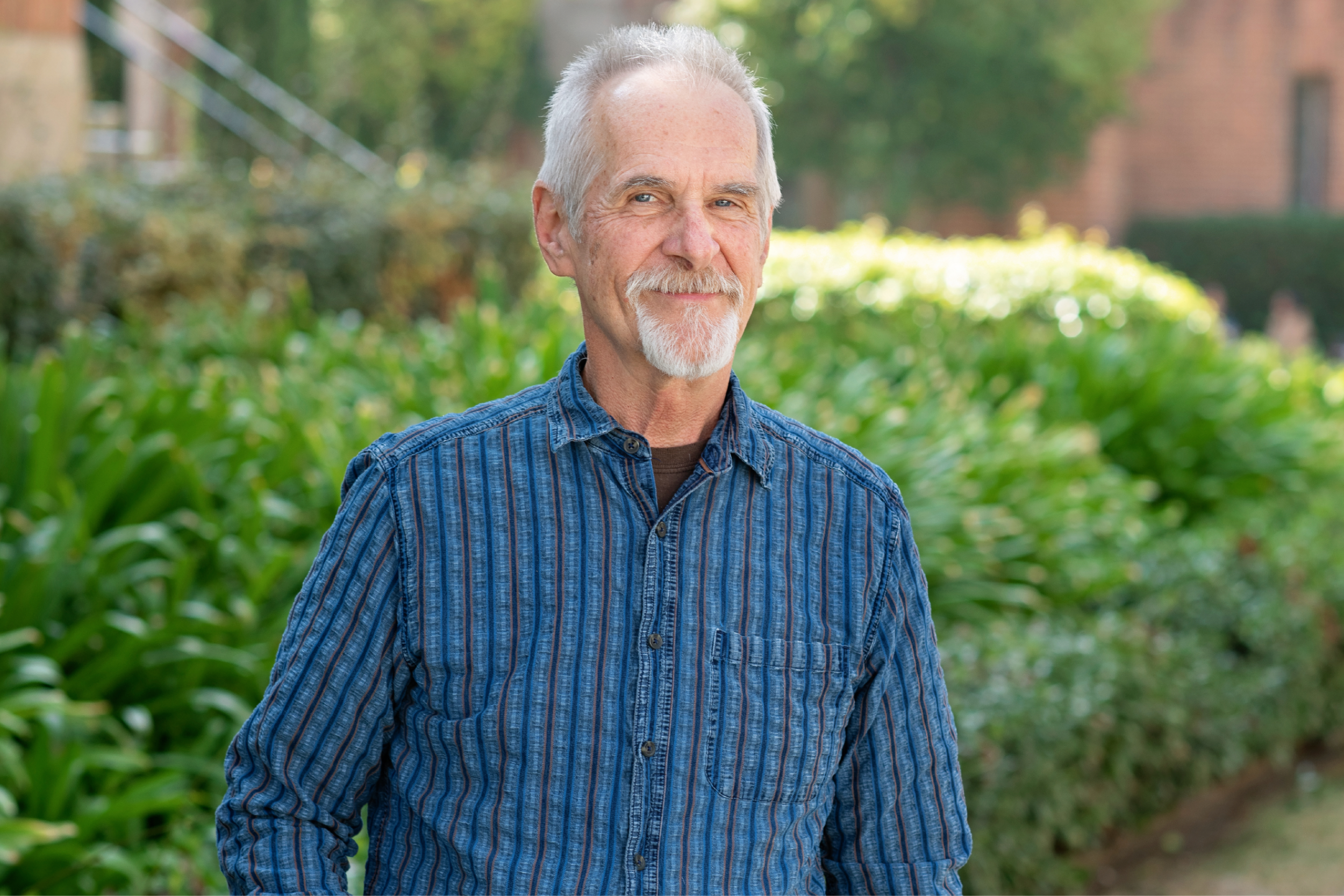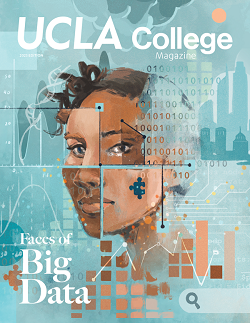By Jonathan Riggs | Photography by Stephanie Yantz
2022 brought a trifecta of important news for UCLA’s Native American community. In addition to the announcement of both the University of California’s Native American Opportunity Plan and UCLA’s Native American and Pacific Islander Bruins Rising Initiative, UCLA’s American Indian studies interdepartmental program was approved to become a full-fledged academic department.
“This has been a longtime goal. My only anxiety is that there’s not exactly a playbook for how you transfer from being a program to a department,” says Paul Kroskrity, who has chaired the program off and on for nearly 30 years and is currently the interim chair. “I’m ready to devote whatever it takes. This represents a reprioritization by the university, and our faculty and students couldn’t be more pleased.”
Born in Brooklyn, Kroskrity is a professor of anthropology, specializing in linguistic anthropology and American Indian studies, who has been on the UCLA faculty since 1978 and working with the Village of Tewa of northern Arizona since 1973 and the Western Mono of central California since 1980. He began his career, however, thinking he would specialize in contemporary Chinese literature, exploring both its political and literary dimensions — until he enrolled in a life-changing linguistic anthropology course in graduate school at Indiana University.
“I took this class with Carl Voegelin, a very famous figure in the field of indigenous languages, where he brought in Shawnee speakers for us to transcribe,” Kroskrity says. “He was amazed I could hear sounds that the other students weren’t picking up. Between that and the fact that I had studied Mandarin, he recommended I work with the Tewa community.”
Language documentation and revitalization have long been key to his work with the tribe, which has undergone a seismic shift from being a largely multilingual group to the youngest generations now learning their native tongue as a second language. Seeing this area of research, which seeks to document and revitalize endangered languages, become a global priority is extremely gratifying for Kroskrity — especially since it wasn’t always the case.
“When I first started, very few students were interested in Native American languages, but now I’m seeing so many take an important interest in this urgent research, with many devoted to the possibility of working on their own heritage languages,” he says. “I’m happy to do anything I can for communities to keep the parts of their culture that are embodied in language alive.”
And, of course, this will call on all the varied talents, resources and potential Kroskrity sees at UCLA.
“The American Indian studies program has assembled an incredible faculty, probably the finest in the nation collectively, with remarkably gifted students,” he says. “This is going to be a wonderful first year of departmentalization, but it’s just going to be one of many.”




 © Stephanie Yantz
© Stephanie Yantz © Stephanie Yantz
© Stephanie Yantz